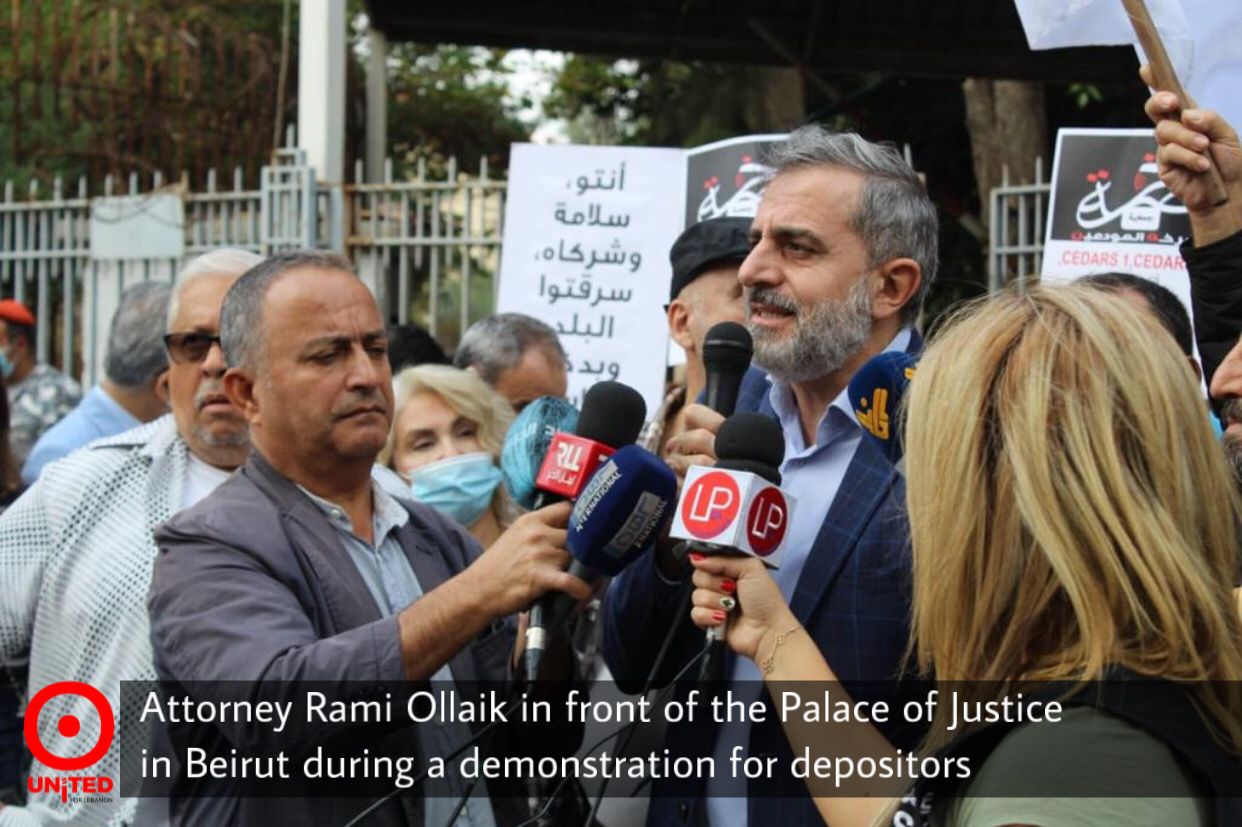
Banking Corruption
Lebanese Banks Stripped of Main Tool for Terrifying Depositors: Bankers Check Not Valid for Exoneration and Court Orders Seizure of Fransabank Assets in Fulfilment of Cash Payment
February 3, 2022. A pivotal day for depositors in Lebanese banks, with two decisions by judges Mariana Anani and Amani Salameh that restored hope in the judiciary and moved depositors' confrontation with Lebanese banks to another level.
When banks, after locking up deposits under Lebanon's present financial and economic crisis, opt to escape any pressure by a legitimate depositor, their common practice has been to close the depositor's account and issue them a banker's check. Instead of cashing the check for its face value, needy depositors have been left with one option: Selling the bankers check at the black market for less than 20 percent of its value.
On the 3rd of this month, Head of Judiciary's Execution Department of Beirut Judge Mariana Anani issued a court order to transfer the precautionary seizure of Fransabank’s assets into an executive seizure. The motion has come as an answer to the request submitted by Lawyer Rami Ollaik, founder of United for Lebanon (UFL), by power of attorney on behalf of the plaintiff from Depositors Outcry Association (DOA), Ayyad Ibrahim. Fransabank has already practiced the most arbitrary types of abuse against Ibrahim, his wife and brother who has been struggling with cancer while said bank refused any payment for medication from Ibrahim's own savings.
Fransabank is now subject to court's executive measures involving its property shares, real estate, movables and other assets. The next immediate step is organizing their sale at a public auction for the purpose of collecting the full value of Ibrahim’s savings in cash dollars. Now the bank's main tool of intimidation against depositors, the bankers check, has turned against it. A critical shift.
On a related front, First Investigative Judge of Bekaa Amani Salameh has issued a verdict on February 3, 2022 to acquit the depositor, Abdullah Al-Saai, who recently utilized the legitimate right to self-defense according to Article 184 of the Lebanese Penal Code. Al-Saai had shown at Bank of Beirut and the Arab Countries (BBAC) in Jubb Jenin area on the 18th of January and threatened all present there to burn the bank with gasoline bottles that he had brought along with him, had it not paid him 50,000 USD of his savings. UFL and DOA had then issued an ultimatum of three demands: Al-Saai released; no money returned; search and investigation warrant against his wife retracted. By acquitting Al-Saai who took the law into his own hands after exhausting all other routes possible, Judge Salameh has spelled out the applicable right to self-defense into legitimacy.
Amidst the ongoing suffering of the people of Lebanon as a result of world's worst economic crisis since 1850s, according to World Bank, such decisions came as a glimpse of hope for all depositors at Lebanese banks. The rules of the game between those banks and their depositors seem to have changed. Anticipation is at its highest now, with how those specific court orders may accrue, with the 'Theft of the Century' local banks committed by means of an orchestrated Ponzi scheme not to remain without oversight and accountability.
Ironically, a decision of disbarring Ollaik, after an earlier arrest due to his vocal activism, was issued three months ago. It was seen as yet another attempt by bankers and their associates to stop local bank depositors from claiming their rightful savings. While UFL, DOA and others organize a sit-in on the morning of February 7, 2022 in front of Beirut's courthouse in support of their rights advocate, Ollaik, steadily as ever, attends Beirut's Court of Appeal session for looking into his disbarment decision by a disciplinary committee of Beirut's Bar association.
Most Read

